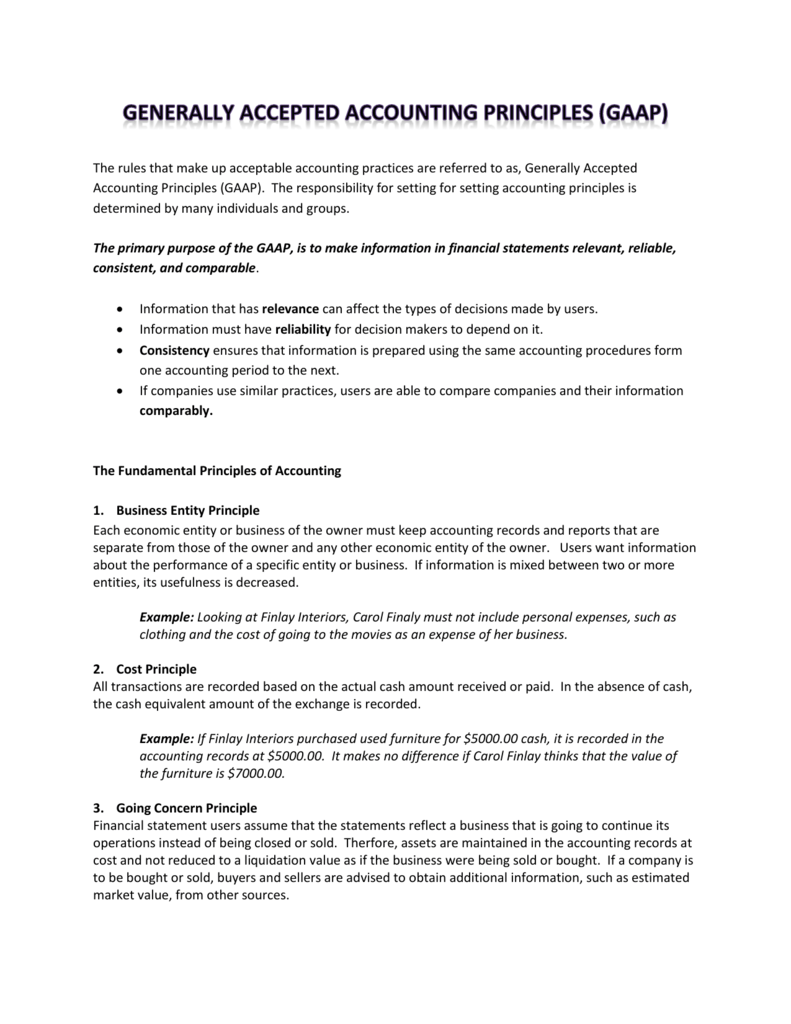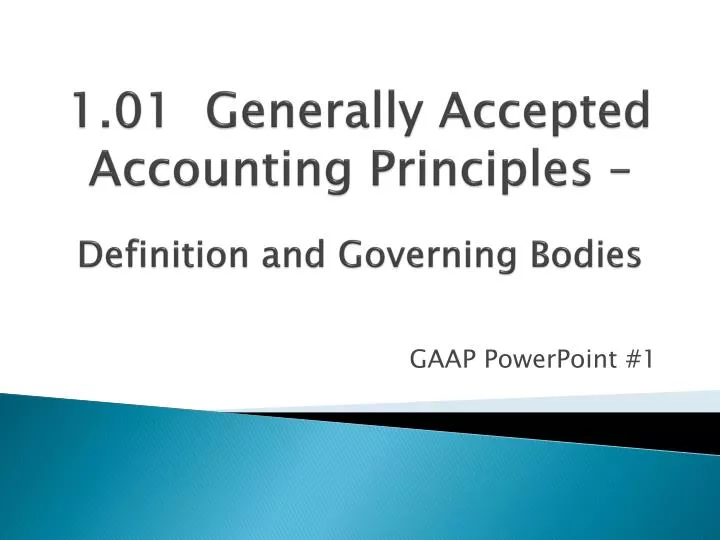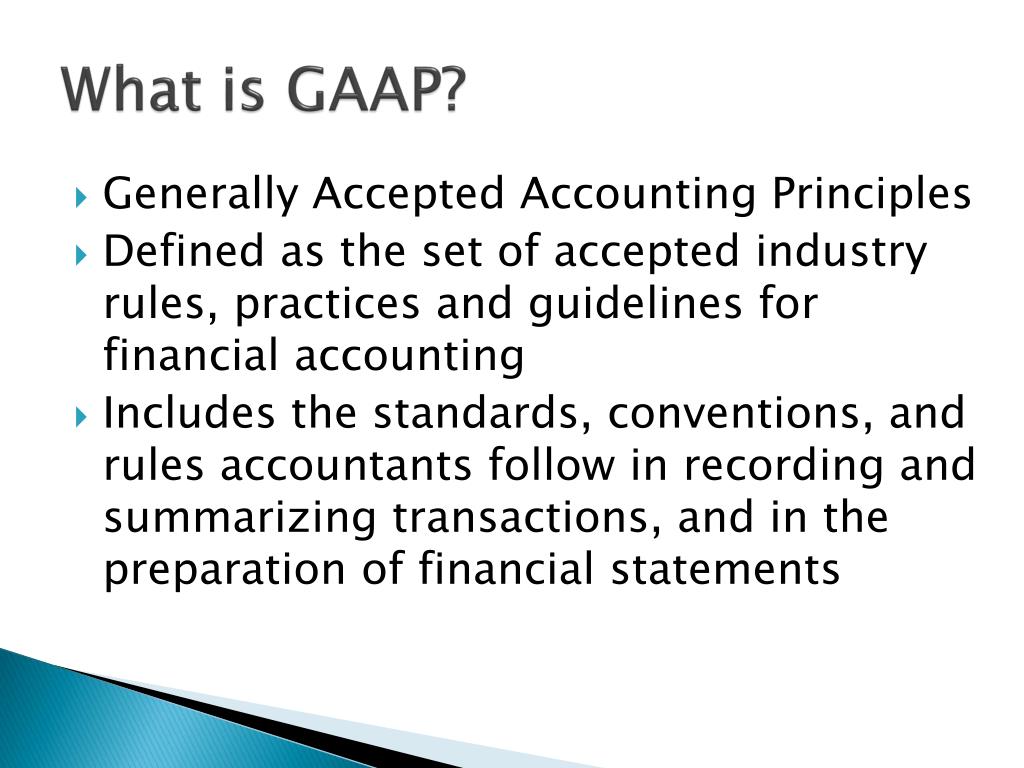

- #GENERALLY ACCEPTED ACCOUNTING PRINCIPLES ARE FULL#
- #GENERALLY ACCEPTED ACCOUNTING PRINCIPLES ARE PROFESSIONAL#
Since the State Boards of Accountancy recognize FASB as an authoritative body, GAAP is their defacto standard, too. FASB is an independent agency that is recognized by the Securities and Exchange Commission (SEC) as the standard-bearer for financial accounting. The GAAP principles are created by a hierarchy of organizations that are responsible for independent accounting standards codification. After all, if a stakeholder is unable to apply guidance to a company's financial statements, they are unlikely to work with them due to the higher exposure to risk.
#GENERALLY ACCEPTED ACCOUNTING PRINCIPLES ARE PROFESSIONAL#
Thus, even if GAAP rules are not an absolute state requirement for accounting practices, it is required that you follow these principles in order to maintain consistency in professional business practices. Federal governmental rules, on the other hand, require that all publicly traded corporations file their financial statements, records, and transactions in accordance with GAAP.
#GENERALLY ACCEPTED ACCOUNTING PRINCIPLES ARE FULL#
However, a full fourteen states are non-GAAP compliant, about matching the number of full-compliance states. Most state and local county governments and their school districts are either fully, mostly, or somewhat follow GAAP rules. Without a common accounting language, it would be difficult to determine relative corporate valuations and grasp the comparative income of an entity. Since various companies agree to follow GAAP guidelines, analysts can compare one organization in the market to another and determine which are alike based on their fiscal similarities. GAAP is needed to ensure that shareholders, regulators, and other interested parties can easily understand the foundation of each company's filings. These control basic topics including performance analysis, investment, revenue recognition and measurement, procedures, and other data and concepts. The GAAP provides a consistent vocabulary and methodology for financial accountants in the U.S.

The Financial Accounting Standards Board (FASB) offer a set of methods and practices act as a path for the GAAP to follow, and The American Institute of Certified Public Accountants (AICPA) are also consulted on the creation of the updated framework of these industry standards. However, gaap accounting also dictates that fraud is always material, regardless of the amount involved.The generally accepted accounting principles (GAAP), also sometimes referred to as generally accepted accounting practice, provide guidance that helps maintain consistency in the field of financial accounting. This would mean that in an audit, issues pertaining to this amount of money could be completely left out. However, for a company that brings in $30 million per year, it would generally not be considered material.

And to a business that makes $60,000 a year, it is very material. For example, $10,000 seems material to most people.

Materiality can vary greatly based on the size of the company. Besides helping ensure that their financial reports adhere to GAAP requirements - which is especially important for small businesses - it can also help eliminate fraudulant activity. I have heard though that the SEC is proposing to convert from gaap standards to International Financial Reporting Standards (IFRS) around 2014.Īny company, large or small should should maintain a current copy of the GAAP guide. Financial reports should adhere to GAAP requirements as mandated by the SEC. I imagine CPA's and other accounting professionals use the GAAP book more often than a CEO would. Please tell us those principles in the GAAP that are included also in the IFRS?


 0 kommentar(er)
0 kommentar(er)
